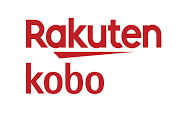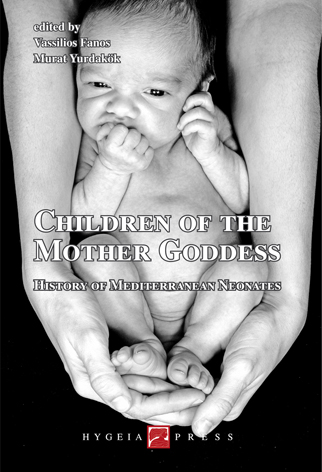Children of the Mother Goddess. History of Mediterranean Neonates (also in EBOOK format)
buy | description | contents | look inside | book reviews | Italian version
How to buy this book
Order this book on Amazon.COM! (ebook edition)
The ebook is available in every local Amazon stores (AT, CO.JP, CO.UK, COM.AU, COM.BR, DE, ES, FR, IN, etc.)
Order this book on Amazon.IT! (print and ebook editions)
Order this book on Kobo! (ebook edition)
For more information on this book, please send us an email at hygeiapress@hygeiapress.com.
Description

“Children of the Mother Goddess. History of Mediterranean Neonates” edited by Vassilios Fanos and Murat Yurdakök
ISBN 9788890438950, 224 pages, € 24, 1st edition: October 2010
Authors: Cristina Areias, Alessandra Atzei, Luigi Cataldi, Marinella Corridori, Giovanni Corsello, Matteo Della Monica, Gian Paolo Donzelli, Thamianos Fanos, Vassilios Fanos, Italo Farnetani, Nadia Maria Filippini, M. Giuseppina Gregorio, Hercília Guimarães, Roberto Mauri, Luigi Memo, Amélia Ricon-Ferraz, Marcella Testa, Teresa Tomé, Francesco Tregnaghi, Kyriakì Tsotra, Alice Vuoso-Mauri, Murat Yurdakök
The leading elements in this volume are the cultural representation of birth and the forms through which its narration and representation develop in the figurative arts, through historical references, mythological tales and legends, traditions, customs and habits. The influence of myth, language and artistic expression on our cultural representation of procreation is manifest, and this way of “narrating” birth resists even today, although it comes into conflict with a more scientific vision of pregnancy and childbirth.
With this book we believe we have contributed to an in-depth examination of illness narratives, thus favouring the search for a convergence between medical language in the sector and the language of cultural experience so that evidence-based medicine does not clash with narrative-based medicine, but that the two languages come together towards a reciprocity that will strengthen the alliance between physician and patient.
Contents
Presentation by Giuseppe Buonocore
Presentation by Paolo Giliberti
Presentation by Gian Paolo Donzelli
Introduction
Vassilios Fanos, Murat Yurdakök
1. Birth in Mediterranean Cultures: Searching for the Roots
Luigi Cataldi, M. Giuseppina Gregorio
The Mother Goddess and the evolution of a culture • The sacred marriage of the Goddess: the Mediterranean culture
2. Birth in Ancient Anatolia
Murat Yurdakök
12,000 years ago • Neolithic times • Hattians and Hittites • Ottoman times
3. Birth and Care of the Newborn in Ancient Greece
Vassilios Fanos, Alessandra Atzei, Marinella Corridori
Childbirth • Rituals following birth • Breastfeeding • Abandonment and infanticide • Parents’ attachment to their children
4. Extraordinary Births in the Gods’ Delivery Room
Vassilios Fanos, Thamianos Fanos, Marinella Corridori
The birth of Athena from Zeus’s head • The birth of Dionysus from Zeus’s thigh • Aphrodite’s birth from Uranus’s member • The birth of Agdistis and Erichthonius from the Earth • When the mothers are those who engender
5. The Newborn and the Child in Magna Graecia
Giovanni Corsello
History • Philosophy, science, myth and religion • Play • Nutrition
6. Birth and Care of the Newborn in Ancient Rome
Marinella Corridori, Vassilios Fanos
The reproductive role of the woman • Midwives • Illustrations of childbirth • Factors considered important for childbirth: girdles and knots • Divinities and childbirth • Childbirth and the first treatments of the newborn • Neonatal mortality • Recognition of the neonate • The abandonment (or exposure) of the newborn • The neonate’s bath, swaddling clothes and crib • Breastfeeding • The name
7. Fertility Rites
Italo Farnetani, Vassilios Fanos, Marinella Corridori
Ethnobiology of reproduction • Fertility rites • The power of light
8. History of Breastfeeding
Marcella Testa, Kyriakì Tsotra
The Egyptians • The Greeks • The Etruscans and Italic peoples • The Romans • Conclusions
9. History of Adoption
Francesco Tregnaghi
Adoption in Babylon • The Old Testament • Ancient Egypt • Ancient Greece • Ancient Rome • The Middle Ages • The French Revolution • Modern times: France and Italy
10. Neonatal Medicine in Ancient Art
Murat Yurdakök
Breastfeeding • The first neonatologists • Caesarean birth • The fetus • Congenital anomalies • Twins • Circumcision
11. Birth Defects through History
Luigi Memo, Matteo Della Monica, Roberto Mauri, Alice Vuoso-Mauri
Ancient Egypt • The Middle East • Ancient Greek and Roman Worlds • The Middle Ages and the Renaissance • 16th to 18th Centuries • Victorian Curiosity • Eugenics and the Nazi madness • Current Perspectives • Conclusions
12. “Extraordinary Birth”. History of the Caesarean Section in the Western World
Nadia Maria Filippini
The birth of gods and heroes • The post mortem caesarean • The 18th-century revolution: Gian Battista Bianchi and Francesco Emanuele Cangiamila • The caesarean section on living women
13. Myths about Childbirth
Amélia Ricon-Ferraz, Hercília Guimarães, Cristina Areias, Teresa Tomé
Pregnancy • Childbirth • Puerperium • The newborn
14. Childhood Protection: Amulets and Talismans
M. Giuseppina Gregorio, Luigi Cataldi
Amulets • Talismans • The amulet as a jewel • Nowadays • Conclusions
15. The Past and Future of European Newborns
Hercília Guimarães, Amélia Ricon-Ferraz, Cristina Areias, Teresa Tomé
Looking to the past • What about the future? • Newborn Individualized Developmental Care and Assessment Program (NIDCAP) • Neonatal end-of-life decisions and palliative care • UENPS (Union of European Neonatal & Perinatal Societies) and EFCNI (European Foundation for the Care of Newborn Infants) • Neonatal mortality and morbidity • The near future
Appendix. Birth (Lyrics)
Gian Paolo Donzelli
Choice • Essence • Premonition • Expectation • Labour • Birth • Life • Breastfeeding
References
List of authors
Look inside
You can also view the book’s table of contents here: link.
Book Reviews
The underlying theme of this book is the narration of childbirth and the forms in which it is expressed through the figurative arts, myth, legends and traditions that orient behaviours and legislative measures. History and traditions are a part of a cultural heritage that brings together physicians and patients and these are expressed in a shared language that makes communication possible. – Giuseppe Buonocore (President of the Union of European Neonatal and Perinatal Societies), October 2010
The event of birth has assumed in all epochs and cultures the connotations of myth, the touch of magic, the symbolism of the supernatural, and it is from these roots that have stemmed the rights of the newborn to be brought up and protected as the prime symbol of the mystery of life. Today, when we affirm newborns’ right to the title of “persons”, recalling the past helps us to find the right answers to the many unresolved questions. – Paolo Giliberti (President of the Italian Neonatology Society), October 2010
The book strongly emphasises how birth is a political and social event that belongs to the history of every single neonate-citizen, to the woman or man who procreated it, to the whole of society. This book should be read by all those operating in the neonatological, paediatric and perinatological sciences at any historic, health, psychological, sociological, and anthropological level, as well as all university students during their training in this discipline. – Gianpaolo Donzelli (President of the Italian Perinatal Medicine Society), October 2010
Italian version
This book is also available in Italian: “Figli della Dea Madre. Storia dei neonati nel Mediterraneo”
